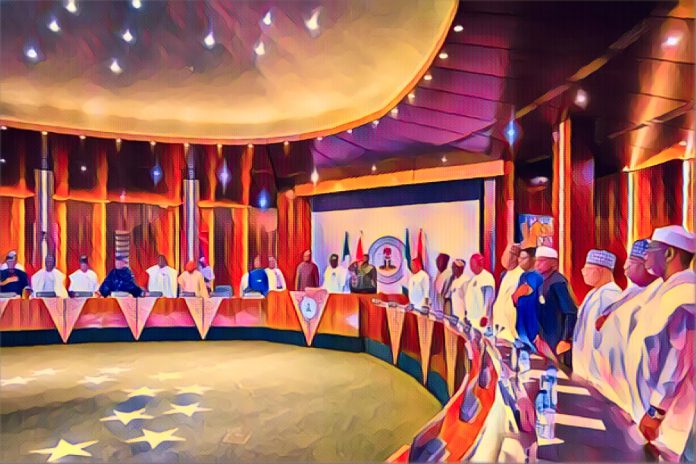In a significant move to address Nigeria’s escalating security concerns and food scarcity issues, the Federal Government, under the leadership of President Bola Tinubu, is actively considering the establishment of state police forces. This landmark decision was revealed following a high-level meeting between President Tinubu and state governors at the Presidential Villa, marking a potential shift in Nigeria’s approach to its internal security dynamics and its fight against food hoarding practices that are exacerbating the country’s food crisis.
The discourse on state policing, a topic of longstanding debate within Nigeria’s political and security circles, has gained fresh momentum under the current administration. The Minister of Information, Mohammed Idris, alongside Governors Caleb Mutfwang of Plateau, Ubah Sani of Kaduna, and Sheriff Oborevwori of Delta, briefed State House Correspondents on the outcomes of the pivotal meeting. The establishment of state police is seen as a critical step towards enhancing the security framework of the nation, with the federal and state governments poised to deliberate further on its operational modalities.
This initiative is not without precedent. The concept of state police was previously championed by the former Deputy President of the Senate, Ike Ekweremadu, who introduced bills for its creation during the Eighth and Ninth National Assemblies. Despite the proposals not coming to fruition, the renewed interest reflects a growing consensus on the need for a more localized approach to policing to effectively tackle the unique security challenges facing various states.
In parallel to the security discussions, President Tinubu has issued a directive to the nation’s top security officials, including the Inspector General of Police, Kayode Egbetokun; the Director General of the State Security Service, Yusuf Bichi; and the National Security Adviser, Nuhu Ribadu. Their mandate is to collaborate with state governors in curtailing the activities of food hoarders, who are contributing to the scarcity and high prices of food commodities by attempting to smuggle them out of the country or profiting from artificially created shortages.
The government’s strategy to combat the food crisis extends beyond enforcement actions against hoarders. It encompasses a broader agenda to boost food production domestically, thereby achieving self-sufficiency and positioning Nigeria as a net exporter of food. This aligns with the administration’s decision to halt the importation of food commodities, a move intended to support local farmers and agribusinesses and build on the progress made in enhancing the nation’s agricultural output.
The collaborative efforts between the federal and state governments are not limited to security and agricultural policies. They also include the expansion of the number and activities of forest rangers to safeguard agricultural lands and the exploration of employment opportunities for the youth to foster socio-economic stability.
The meeting between President Tinubu and the state governors underscored a unified commitment to addressing Nigeria’s pressing issues, transcending political affiliations. The establishment of a committee to further explore the discussed measures signifies the beginning of a continuous dialogue aimed at fostering a peaceful, united, and prosperous Nigeria.
As the country navigates these challenges, the government’s openness to innovative solutions such as state policing and its determination to ensure food security through local production initiatives mark a pivotal moment in Nigeria’s journey towards sustainable development and enhanced national security. The consensus reached at the Presidential Villa reflects a collective resolve to strengthen the fabric of the nation, promising a future where every Nigerian can live in a secure environment and have access to affordable food.



